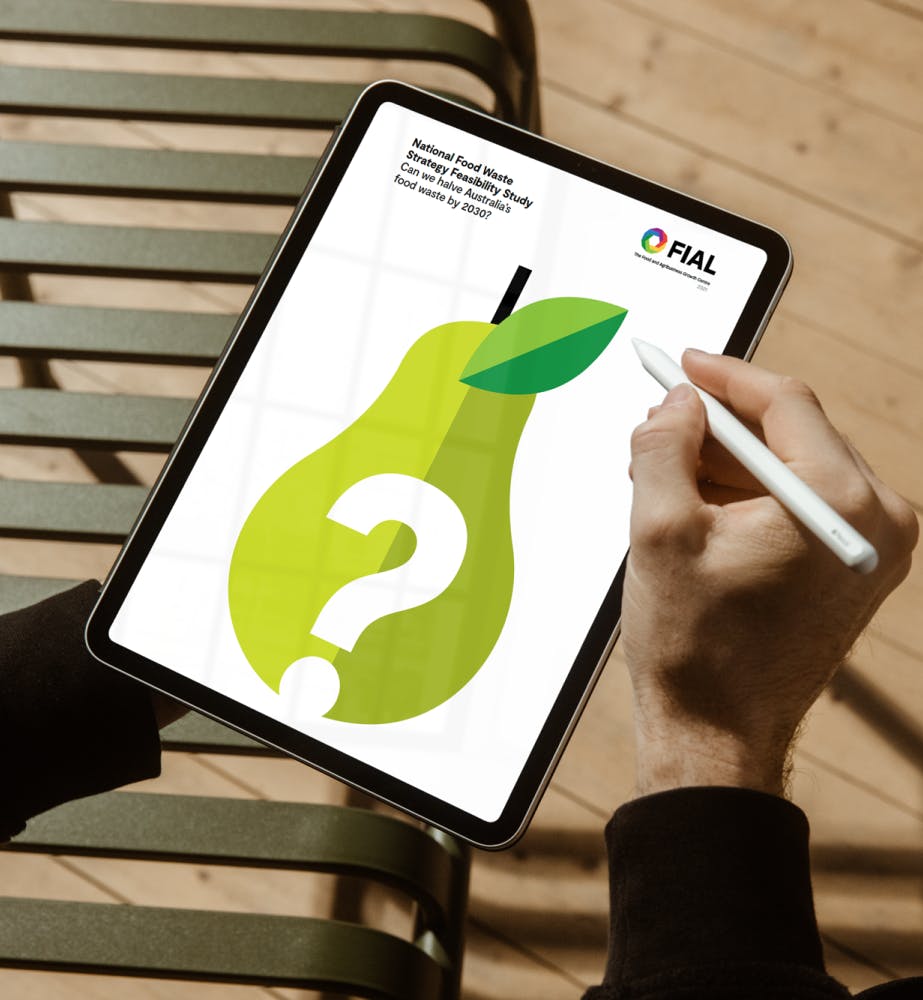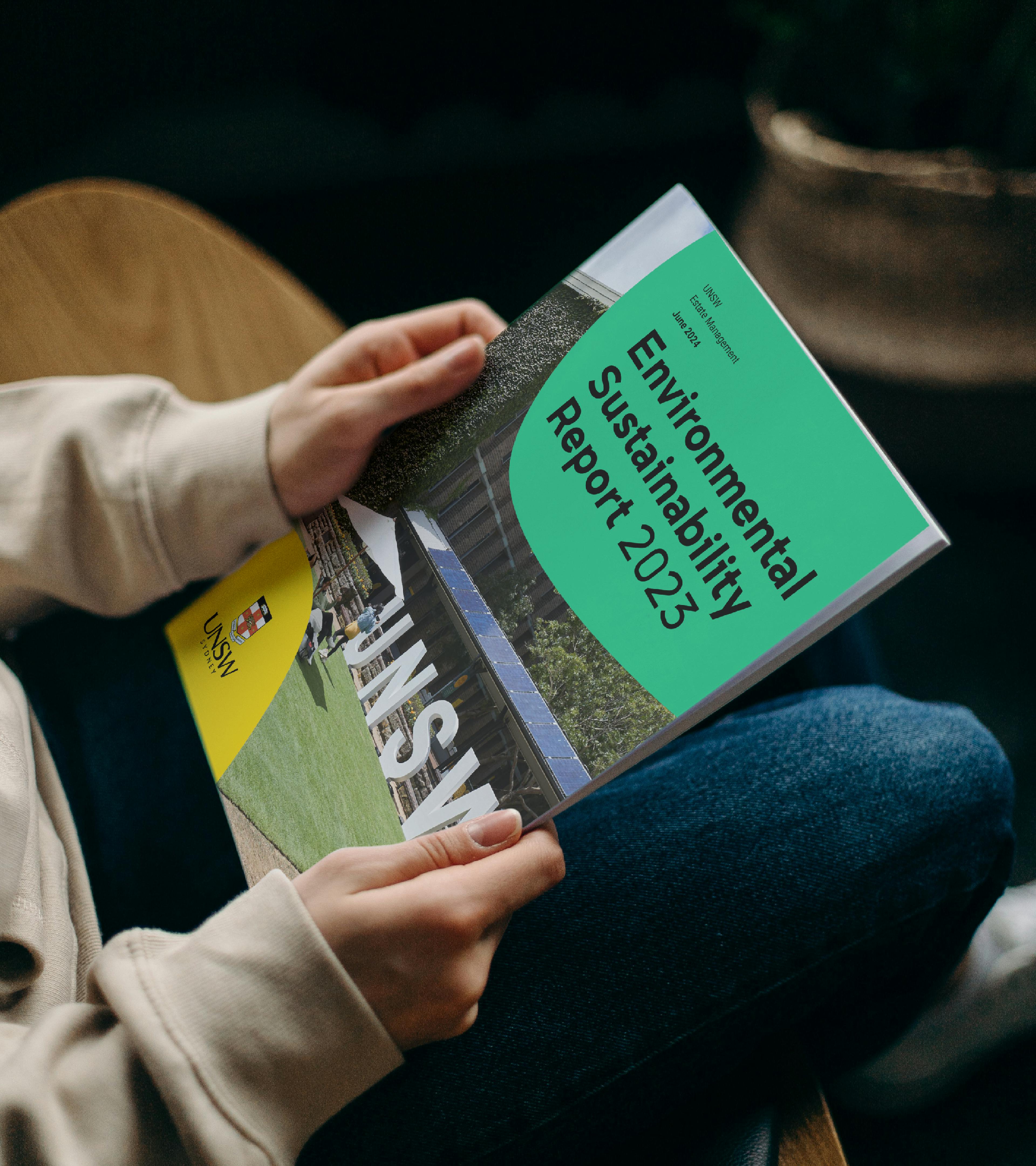
Nature impact and dependency assessment
UNSW’s Supply Chain Reliance and Impact on Nature
We set out to unpack the nature-related impacts and dependencies through UNSW’s supply chain.
The Challenge
With a significant proportion of UNSW’s greenhouse gas footprint attributed to its supply chain, it was likely that a large proportion of the University's nature impacts would also sit within its supply chain.
To better understand this, UNSW in collaboration with Sustainability Advantage, the NSW Government's leading business support program and Edge Impact, set out to unpack the nature-related impacts and dependencies through UNSW’s supply chain, and the strategic actions, including foundational systems, processes, capability, and initiatives, that UNSW need to undertake over the next 3 years to reduce impact and exposure to nature-related risk in purchasing decisions.
Key Deliverables
Dashboard of supply chain impact and dependencies on nature
3 Year Action Roadmap
A Detailed Evidence Report
The Approach
The quantitative assessments analysed approximately $1 billion or 75% of UNSW’s total 2022 spend, focusing on the spend categories where UNSW could have the greatest potential impact to affect change.
Supply chain nature impacts were quantified through a lifecycle assessment (LCA) methodology to calculate the impact per spend category and country of sourcing.
Nature-related risk was explored through a quantified materiality assessment of ecosystem service dependencies for each of UNSW’s spend categories leveraging the Exploring Natural Capital Opportunities, Risks and Exposure (ENCORE) platform maintained by Global Canopy and the United Nations Environment Programme.
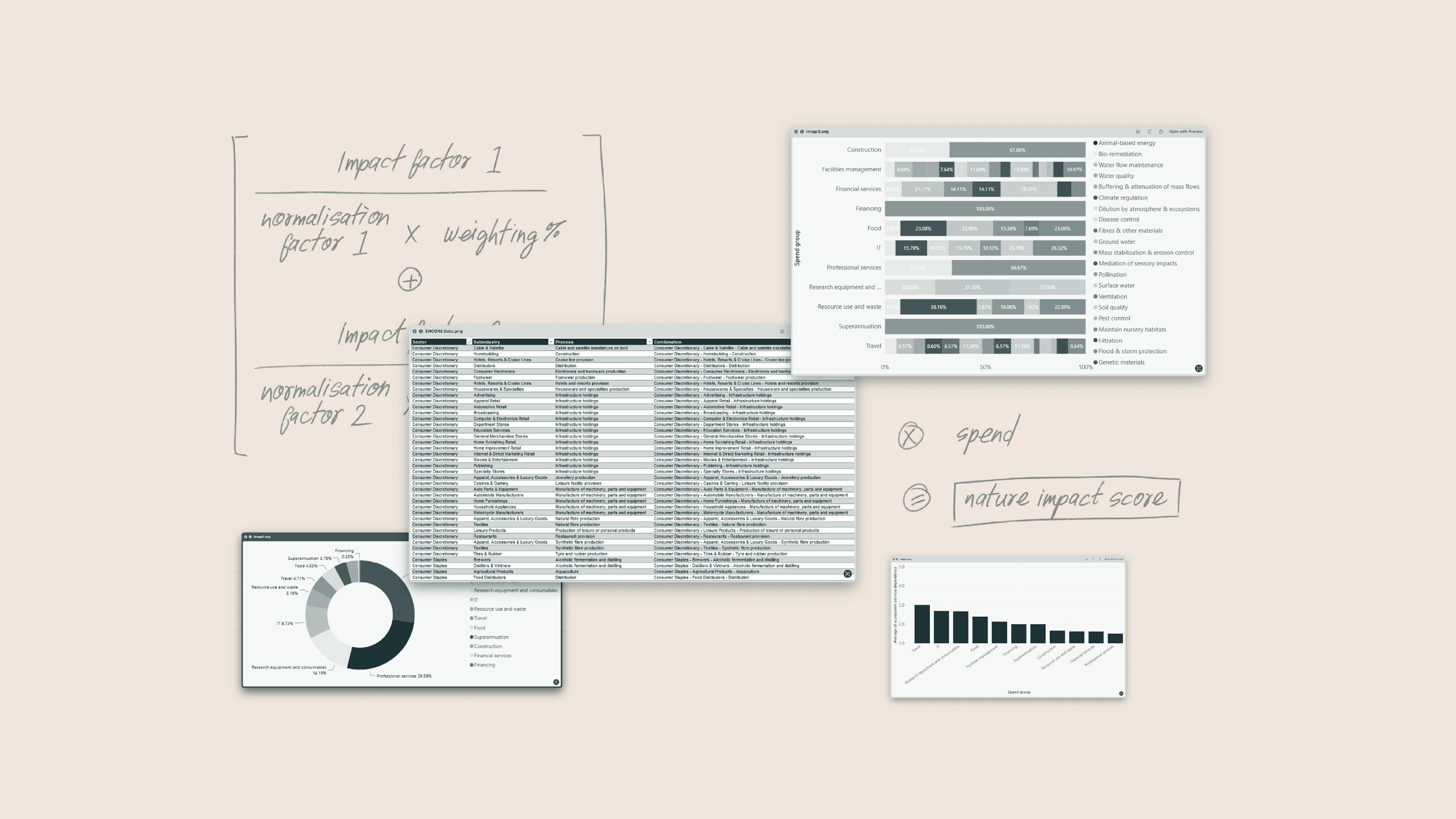
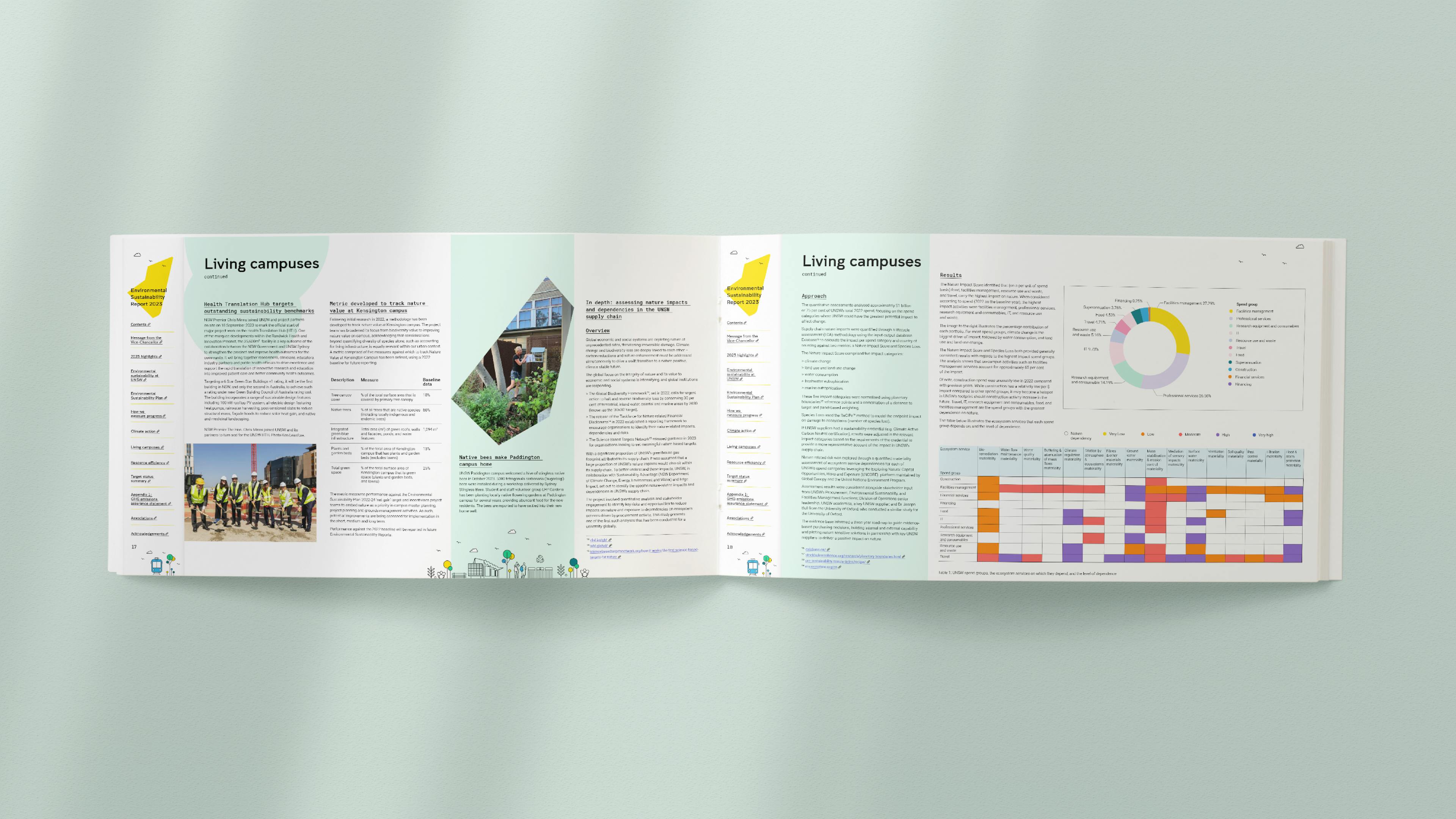
The results of these assessments were considered alongside stakeholder input.
The evidence base informed a three-year roadmap to develop the foundations for making evidence-based purchasing decisions, building internal and external capability and piloting nature sensitive solutions in partnership with key UNSW suppliers to explore feasibility, scalability, and opportunities for a positive impact on nature.
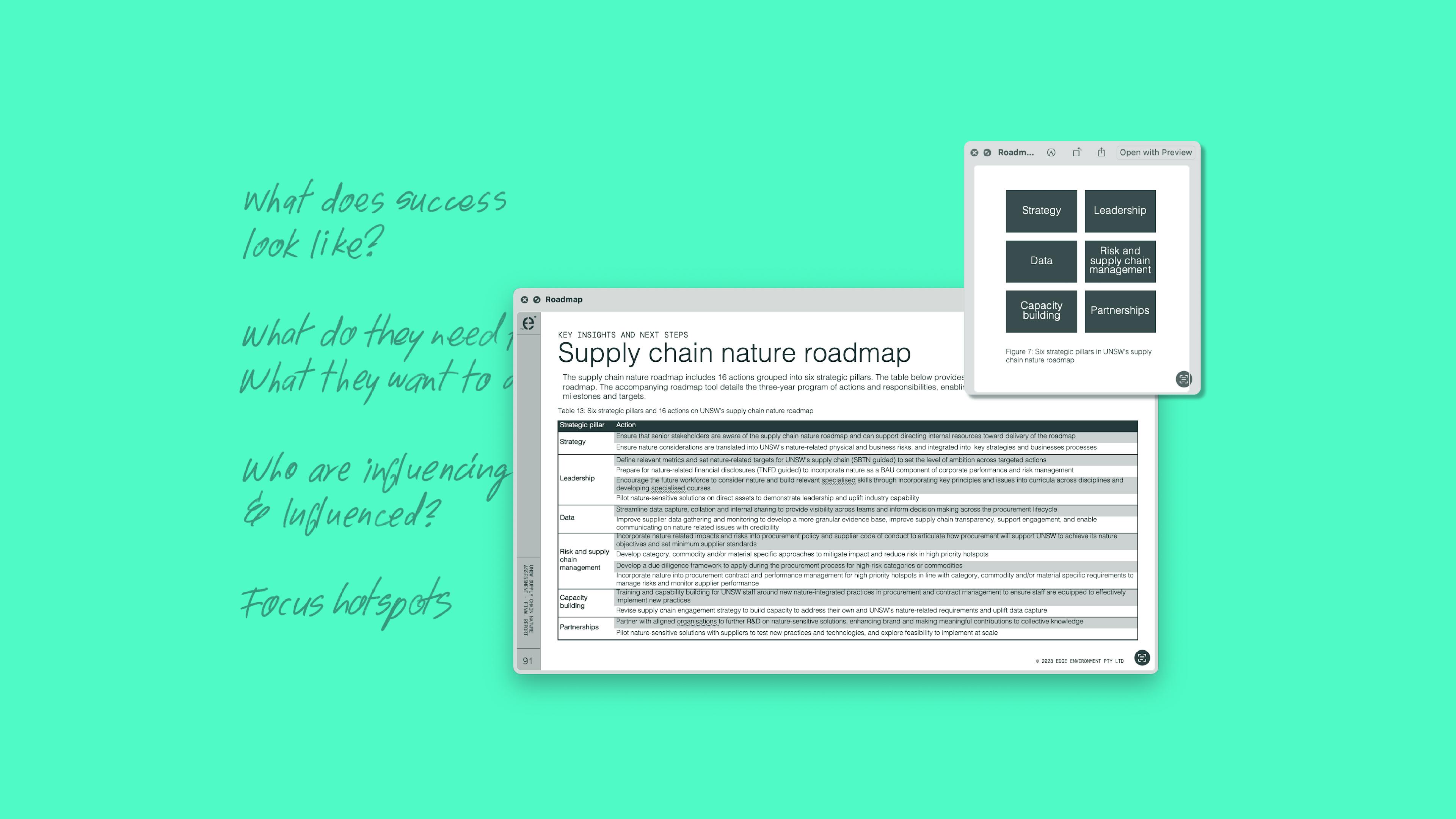
Travel, IT, research equipment and consumables, food, and facilities management are the spend groups with the greatest dependence on nature.
For most spend groups, climate change is the biggest driver of impact, followed by water consumption, and land use and land use change.
The Nature Impact Score and Species Loss both provided generally consistent results with regards to the highest impact spend groups.
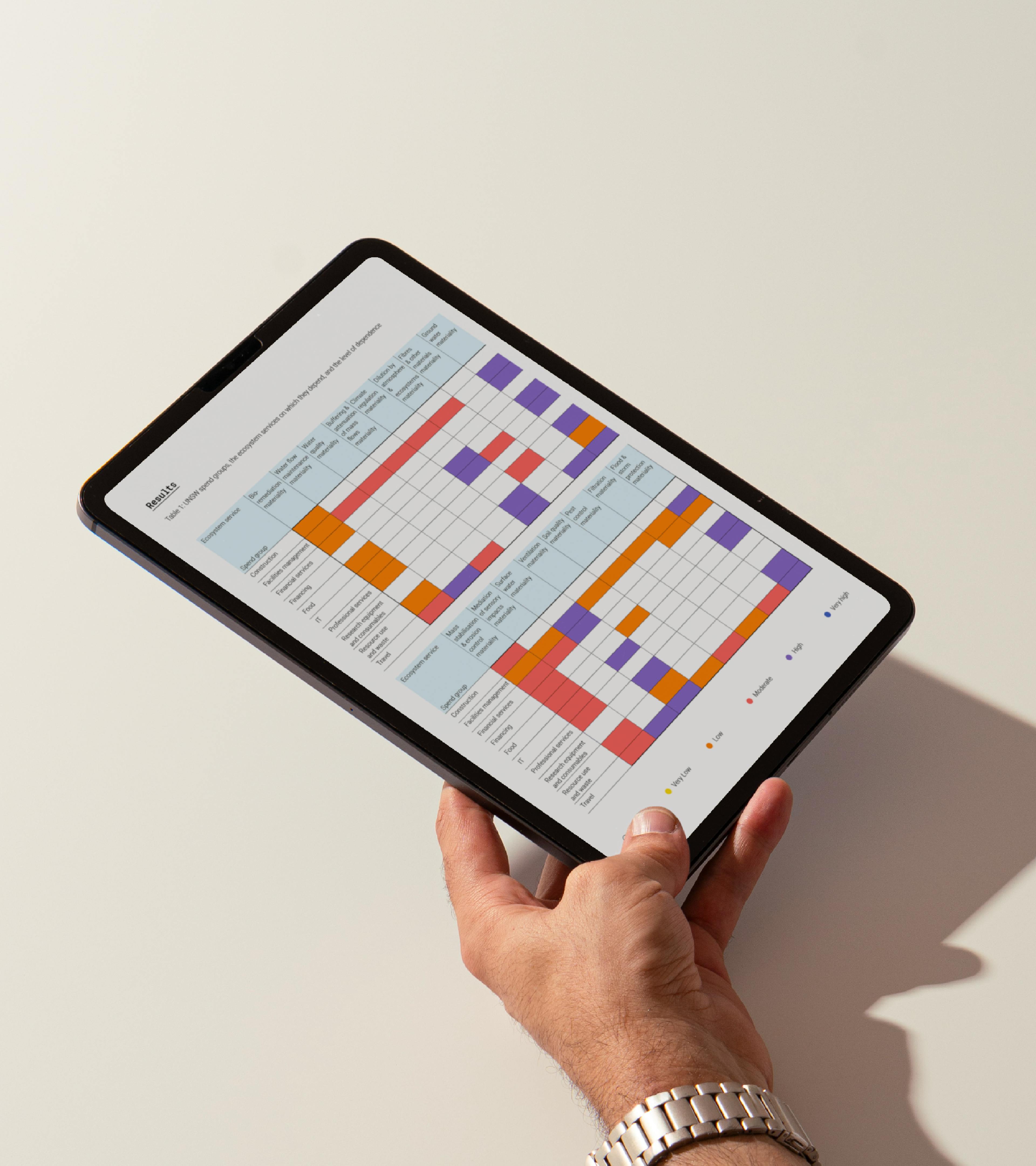
The Result
The Nature Impact Score identified that (on a per unit of spend basis) food, facilities management, resource use and waste, and travel carry the highest impact on nature. When considered according to 2022 spend (baseline year) facilities management, professional services, research equipment and consumables, IT, resource use and waste have the highest impact footprint.
The key learnings from this project include:
- Emissions and water consumption are the two biggest drivers of impacts on nature from UNSW’s supply chain, while data availability prevented gaining a credible view of geographic impact hotspots.
- Spend related to on-campus activities have high dependence on ecosystem services including IT, research expenses, food, and facilities maintenance.
- UNSWs supply chain is dependent on an array of ecosystem services including surface and ground water, dilution by atmosphere and ecosystems, flood and storm protection, climate regulation, and mass stabilisation and erosion control.
- Understanding and addressing supply chains nature impacts and dependencies is complex and will require a significant uplift in capabilities, systems and processes to gather credible supplier specific data to substantiate evidence-based procurement decisions and strategies.
The location of supply chain activities (raw material extraction, cultivation, and manufacturing) greatly influences the supplier’s interface with ecosystems, production practices can vary widely, affecting the level of impact on nature, all of which can erode data confidence.
Traditional procurement practices rarely capture supplier data beyond direct suppliers – this was no different for UNSW.
The UNSW project team will continue to build out the roadmap and begin implementation of priority actions in 2024.
“Nature risks and impacts for supply chain of over 6,000 suppliers are complex, but the expert team at Edge guided us through a process that drew on leading practice tools and methodologies. Through the project we’ve learned about our key nature impact drivers, hotspots and dependencies, and we now have a roadmap for meaningful action to address our impacts and risks. It’s been fantastic working with the Edge team.”
William Syddall
Head of Environmental Sustainability, UNSW

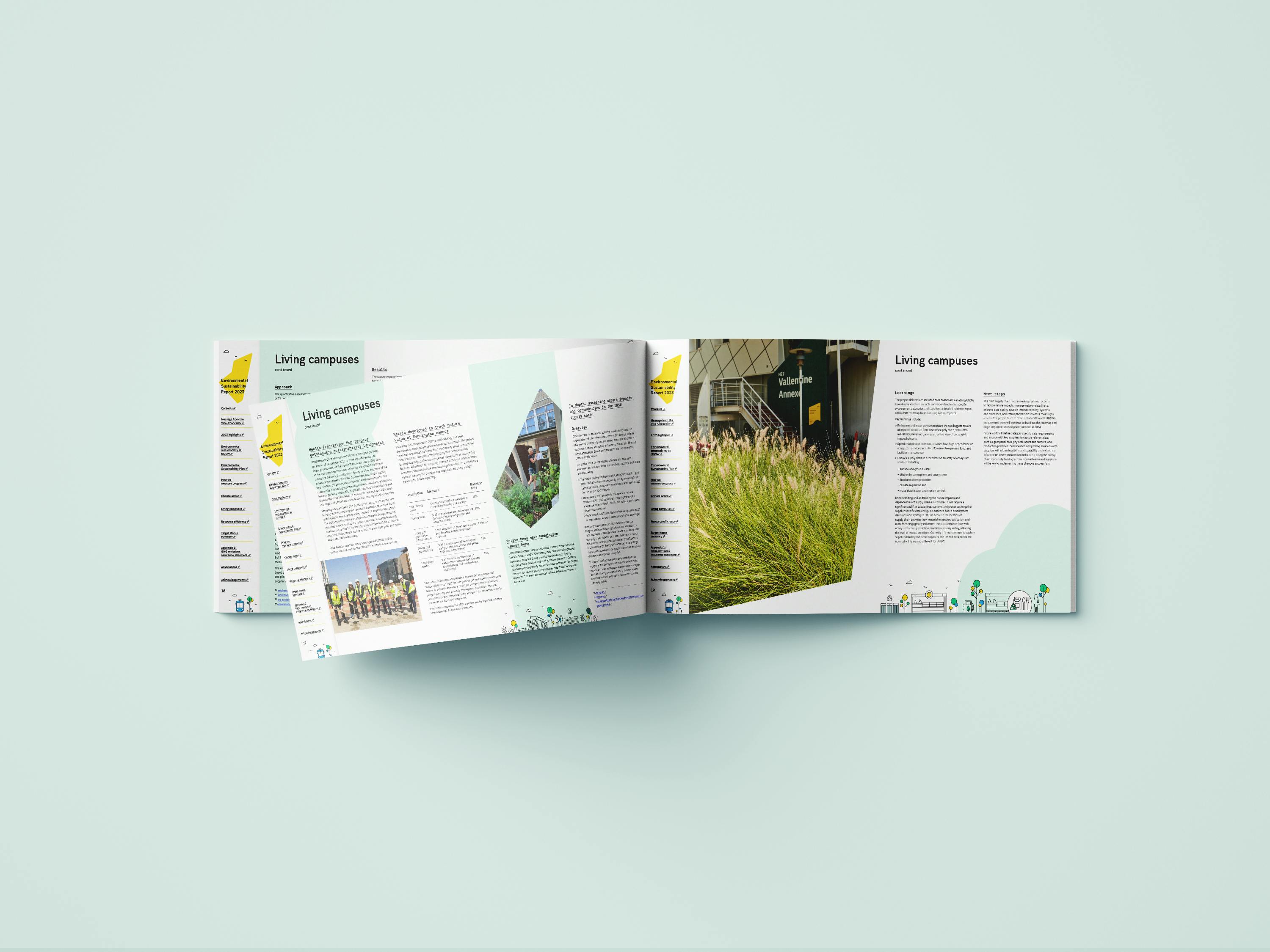
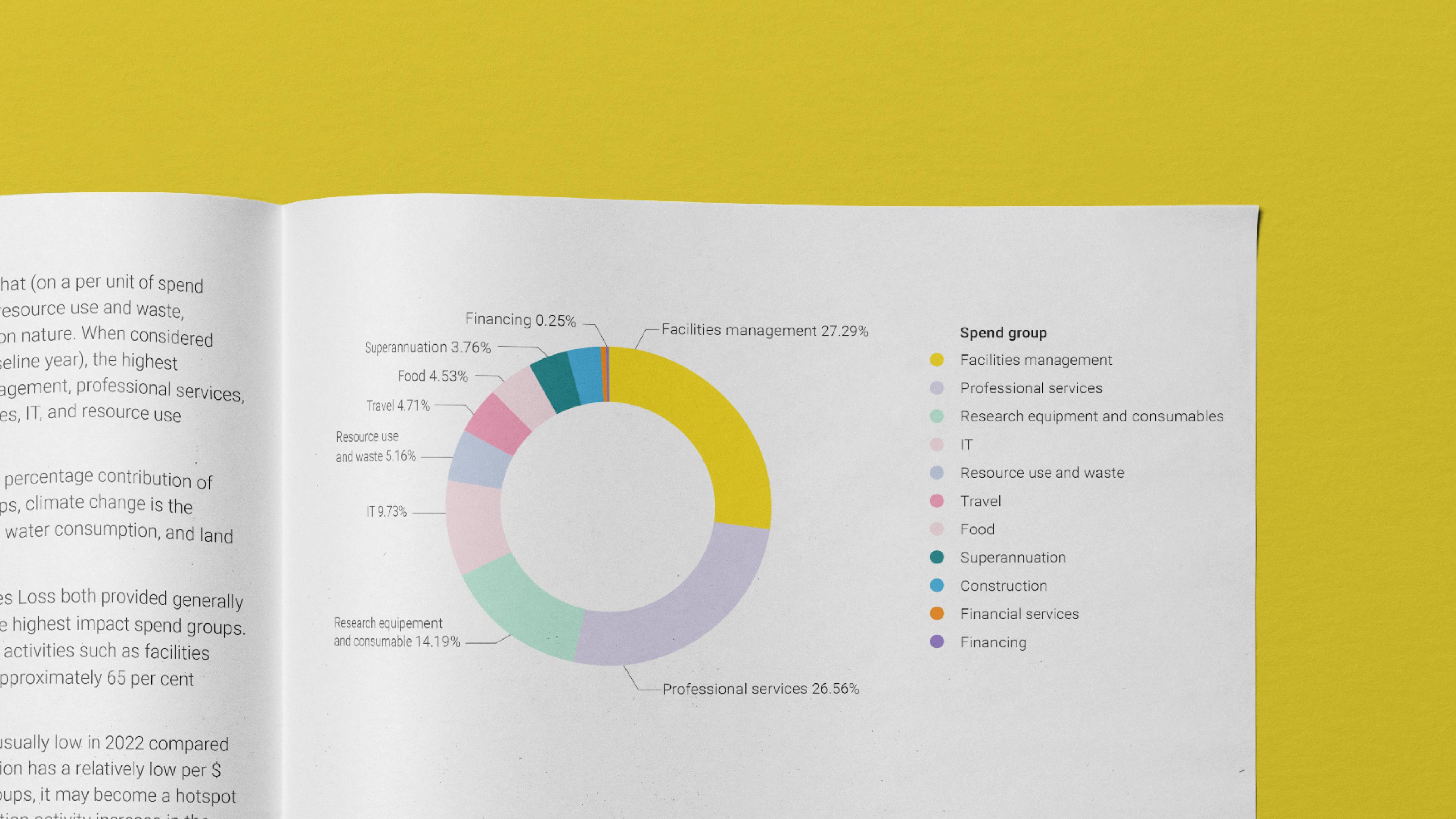
“Sustainability Advantage recognises that nature is fast emerging as the critical consideration essential to achieve our net zero ambitions. Collaborations like this are necessary to accelerate action, and we are thrilled to support this innovative and pioneering project.”
Amy Croucher
Nature Lead, Sustainability Advantage
Explore UNSW's 2023 Environmental Sustainability Report.
Read it here.
Related case studies
A comprehensive plan for lower emissions in winemaking
Wine Australia's Emissions Reduction Roadmap
An industry-led approach to cutting emissions while ensuring prosperity for grape growers and winemakers.
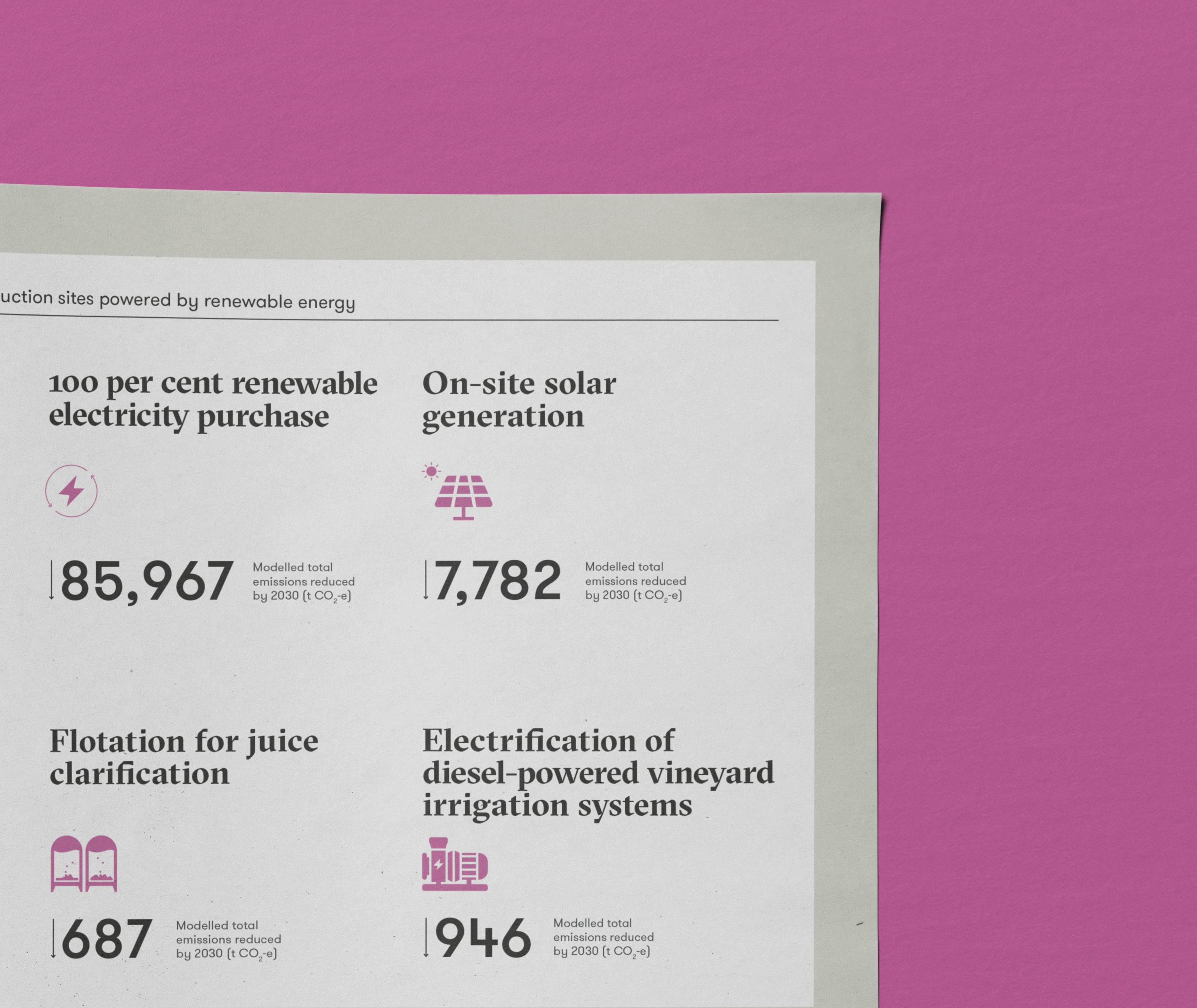
A transformative stewardship scheme
Tackling Australia's largest waste stream
Fit for Office mitigates the impact of discarded furniture to drive a sustainable future.

A feasibility study for Food Innovation Australia Limited
Australia’s Path to Reducing Food Waste by 2030
Edge Impact led a consortium to assess feasibility and actions for FIAL’s food waste target.
